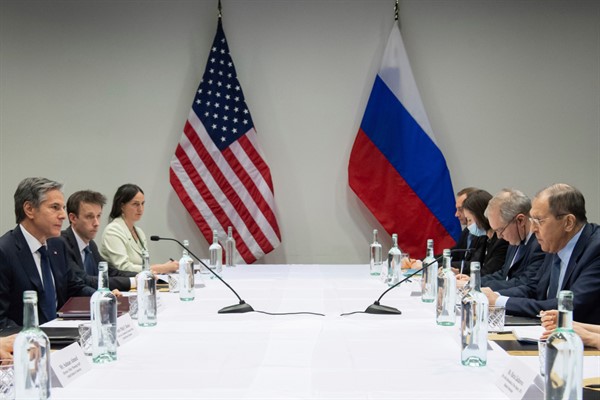When U.S. Secretary of State Antony Blinken met last month with his Russian counterpart, Sergey Lavrov, in Reykjavik, it prompted inevitable comparisons with another high-level encounter in Iceland’s capital: the famous October 1986 summit between Ronald Reagan and Mikhail Gorbachev that set the stage for the thawing of the Cold War.
As the current American and Russian leaders, Joe Biden and Vladimir Putin, prepare for their first summit on June 16 in Geneva, prospects are slim for the kind of breakthrough achieved by Reagan and Gorbachev. Tensions remain high due to Russia’s 2014 annexation of Crimea and subsequent invasion of Ukraine; its interference in U.S. elections; its aggressive behavior in cyberspace—including the recent SolarWinds hack, which compromised a range of public and private sector entities across the West—and the sanctions that Washington imposed in response to all those activities.
The Biden-Putin meeting will nonetheless provide an important test of the two countries’ ability to forge what Blinken termed “a more stable and predictable relationship.”

